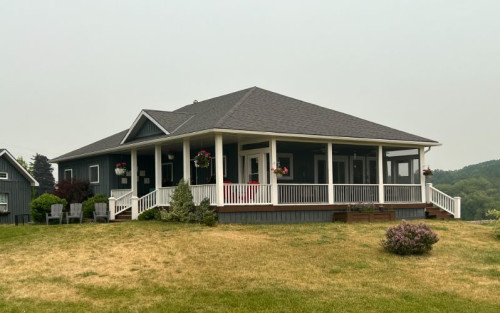
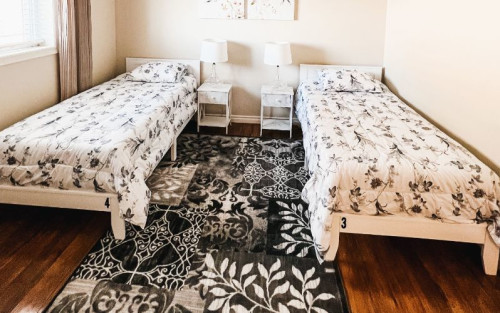




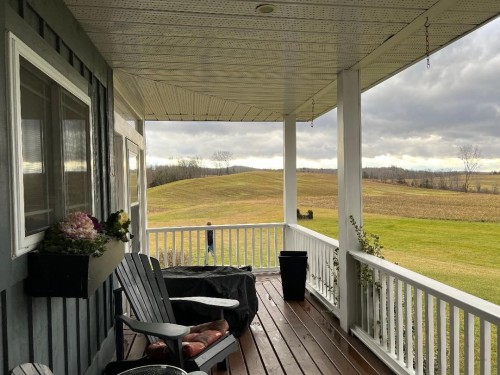
Lily Rain Recovery
Verified Center
This provider's information has been quality-checked by Recovery.com's Research Team for accuracy and completeness, including center verification through appropriate third-party organizations.
Treatment Focus
This center treats substance use disorders and co-occurring mental health conditions. Your treatment plan addresses each condition at once with personalized, compassionate care for comprehensive healing.
Primary Level of Care
Offering intensive care with 24/7 monitoring, residential treatment is typically 30 days and can cover multiple levels of care. Length can range from 14 to 90 days typically.
Treatment Focus
This center treats substance use disorders and co-occurring mental health conditions. Your treatment plan addresses each condition at once with personalized, compassionate care for comprehensive healing.
Primary Level of Care
Offering intensive care with 24/7 monitoring, residential treatment is typically 30 days and can cover multiple levels of care. Length can range from 14 to 90 days typically.
Private Pay
You pay directly for treatment out of pocket. This approach can offer enhanced privacy and flexibility, without involving insurance. Exact costs vary based on program and length of stay. Contact the center for specific details.
Lily Rain Recovery
Lily Rain Recovery
About Lily Rain Recovery
Lily Rain Recovery treats women with addiction and mental health conditions. Their women-only center rests on 4 acres of countryside, set apart from busy cities. They welcome a group of 10 women for a 30-day treatment period. Treatment stays highly personal and intimate with small group sizes and 1:1, evidenced-based and holistic care for comprehensive recovery. Lily Rain Recovery is proud to be chosen to be part of the roster for Intervention Canada.
Individual And Group Treatments
Women at Lily Rain Recovery meet with their psychotherapist once a week, and twice a week with their addiction counselor. Lily Rain Recovery prioritizes group therapy and group activities to help women learn together and find a sense of community. Their group topics include anger management, healthy boundaries, relapse prevention, triggers, shame and guilt, self-care, mindfulness, and managing depression and anxiety. They also lead psychoeducation groups with role playing and practicing healthy communication skills.
Dual-Diagnosis Recovery
Lily Rain Recovery provides evidence-based therapies to help women heal from addiction and mental health conditions long term. These include cognitive behavioral therapy (CBT), mindfulness-based stress reduction therapy (MBSR), acceptance and commitment therapy (ACT), and solution-focused-brief-therapy (SFBT). They also offer on-site 12-Step groups like alcoholics anonymous (AA), narcotics anonymous (NA), cocaine anonymous (CA), and non-12-Step SMART recovery.
Alternative Treatments And Aftercare
Lily Rain Recovery offers spiritual therapy, art therapy, journaling, an on-site gym, and motivational speakers. They also offer airport transfers for women flying into treatment. After women complete their 30 days of treatment, Lily Rain Recovery provides unlimited access to their support staff for a year.

Center Overview
Treatment Focus
This center treats substance use disorders and co-occurring mental health conditions. Your treatment plan addresses each condition at once with personalized, compassionate care for comprehensive healing.
CARF Accredited
CARF stands for the Commission on Accreditation of Rehabilitation Facilities. It's an independent, non-profit organization that provides accreditation services for a variety of healthcare services. To be accredited means that the program meets their standards for quality, effectiveness, and person-centered care.

Cash Pay Rates
Estimated Cash Pay Rate
Center pricing can vary based on program and length of stay. Contact the center for more information. Recovery.com strives for price transparency so you can make an informed decision.
Meet Your Care Team
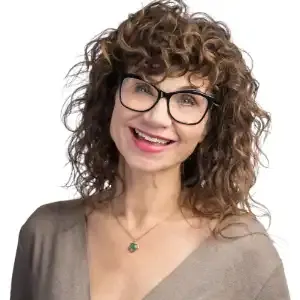
Paige Dewey
Program Director

Kerry Smith
Counselor

Brittany
Online Psychotherapist

Madeleine
Online Psychotherapist
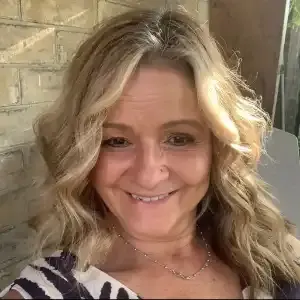
Julie
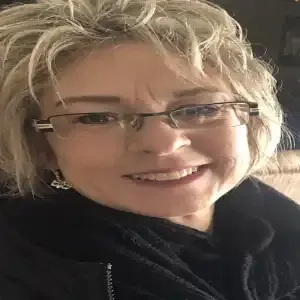
Kim
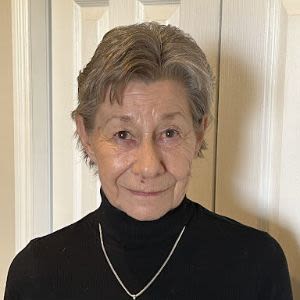
Chef Maribeth
Chef
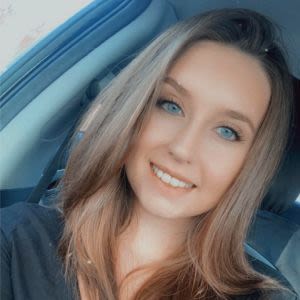
Jess Chard

Daisy

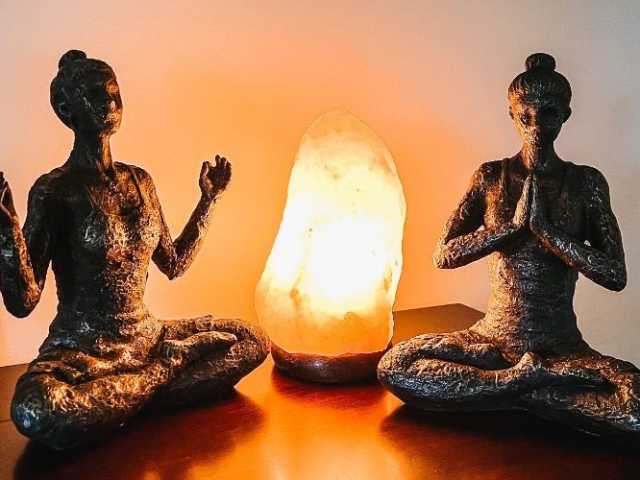

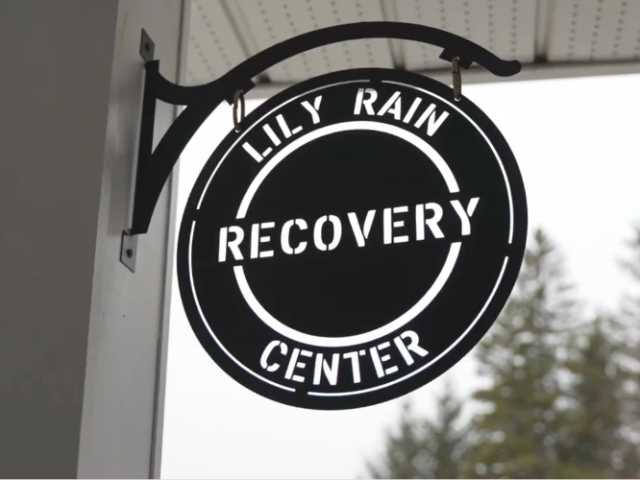
Levels of Care







Your Care Options
Specializations
Alcohol
Using alcohol as a coping mechanism, or drinking excessively throughout the week, signals an alcohol use disorder.
Drug Addiction
Drug addiction is the excessive and repetitive use of substances, despite harmful consequences to a person's life, health, and relationships.
Holistic
A non-medicinal, wellness-focused approach that aims to align the mind, body, and spirit for deep and lasting healing.
Women only
Women attend treatment in a gender-specific facility, with treatment delivered in a safe, nourishing, and supportive environment for greater comfort.
Who We Treat
LGBTQ+
Addiction and mental illnesses in the LGBTQ+ community must be treated with an affirming, safe, and relevant approach, which many centers provide.
Women only
Women attend treatment in a gender-specific facility, with treatment delivered in a safe, nourishing, and supportive environment for greater comfort.
Approaches
Evidence-Based
A combination of scientifically rooted therapies and treatments make up evidence-based care, defined by their measured and proven results.
Individual Treatment
Individual care meets the needs of each patient, using personalized treatment to provide them the most relevant care and greatest chance of success.
Twelve Step
Incorporating spirituality, community, and responsibility, 12-Step philosophies prioritize the guidance of a Higher Power and a continuation of 12-Step practices.
Gender-Specific
Separate treatment for men or women can create strong peer connections and remove barriers related to trauma, shame, and gender-specific nuances.
Therapies
1-on-1 Counseling
Patient and therapist meet 1-on-1 to work through difficult emotions and behavioral challenges in a personal, private setting.
Meditation & Mindfulness
A practiced state of mind that brings patients to the present. It allows them to become fully aware of themselves, their feelings, and the present moment.
Mindfulness Therapy
This ancient practice can be mental, emotional, and even spiritual. In meditation, you focus your attention on the present moment without judgement.
Art Therapy
Visual art invites patients to examine the emotions within their work, focusing on the process of creativity and its gentle therapeutic power.
Psychodrama Therapy
Patients act out real or imagined scenarios under a therapist's guidance. These exercises foster creative thought, sponteneity, and problem-solving skills.
Relapse Prevention Counseling
Relapse prevention counselors teach patients to recognize the signs of relapse and reduce their risk.
Solution Focused, Goal-Oriented Therapy
A quick goal-oriented therapy that helps patients identify their current and future goals, find out how to achieve them, and empower future problem-solving.
Twelve Step Facilitation
12-Step groups offer a framework for addiction recovery. Members commit to a higher power, recognize their issues, and support each other in the healing process.
Conditions We Treat
Anger
Although anger itself isn't a disorder, it can get out of hand. If this feeling interferes with your relationships and daily functioning, treatment can help.
Anxiety
Anxiety is a common mental health condition that can include excessive worry, panic attacks, physical tension, and increased blood pressure.
Depression
Symptoms of depression may include fatigue, a sense of numbness, and loss of interest in activities. This condition can range from mild to severe.
Trauma
Some traumatic events are so disturbing that they cause long-term mental health problems. Those ongoing issues can also be referred to as "trauma."
Substances We Treat
Alcohol
Using alcohol as a coping mechanism, or drinking excessively throughout the week, signals an alcohol use disorder.
Benzodiazepines
Benzodiazepines are prescribed to treat anxiety and sleep issues. They are highly habit forming, and their abuse can cause mood changes and poor judgement.
Co-Occurring Disorders
A person with multiple mental health diagnoses, such as addiction and depression, has co-occurring disorders also called dual diagnosis.
Cocaine
Cocaine is a stimulant with euphoric effects. Agitation, muscle ticks, psychosis, and heart issues are common symptoms of cocaine abuse.
Drug Addiction
Drug addiction is the excessive and repetitive use of substances, despite harmful consequences to a person's life, health, and relationships.
Ecstasy
Ecstasy is a stimulant that causes intense euphoria and heightened awareness. Abuse of this drug can trigger depression, insomnia, and memory problems.
Heroin
Heroin is a highly addictive and illegal opioid. It can cause insomnia, collapsed veins, heart issues, and additional mental health issues.
Methamphetamine
Methamphetamine, or meth, increases energy, agitation, and paranoia. Long-term use can result in severe physical and mental health issues.
Languages
Aftercare
Care Designed for Your Needs
Personal Amenities
Amenities
Special Considerations
Gender-specific groups
Patients in gender-specific groups gain the opportunity to discuss challenges unique to their gender in a comfortable, safe setting conducive to healing.
Activities

What people are saying
Treatment
3.4
Accommodations
4.5
Food & Nutrition
3.6
Value
3.3
Pros
- Beautiful Location (3)
- Supportive Aftercare (2)
- Gourmet & Nutritious Food (2)
- Access to Nature (2)
Cons
- Poor Internet Connection (3)
- Disjointed Care (2)
- Costs More Than Value Received (2)
B
Treatment in 2023 • (45 days) • Reviewed 09/30/23
Former Client
Lisa
Treatment in 2023 • (30 days) • Reviewed 07/07/23
Former Client
•Ontario
JJ
Treatment in 2023 • (45 days ) • Reviewed 07/21/23
Former Client
Shari Dale. Ontario
Reviewed 04/20/23
Referring Professional
•Business Owners





